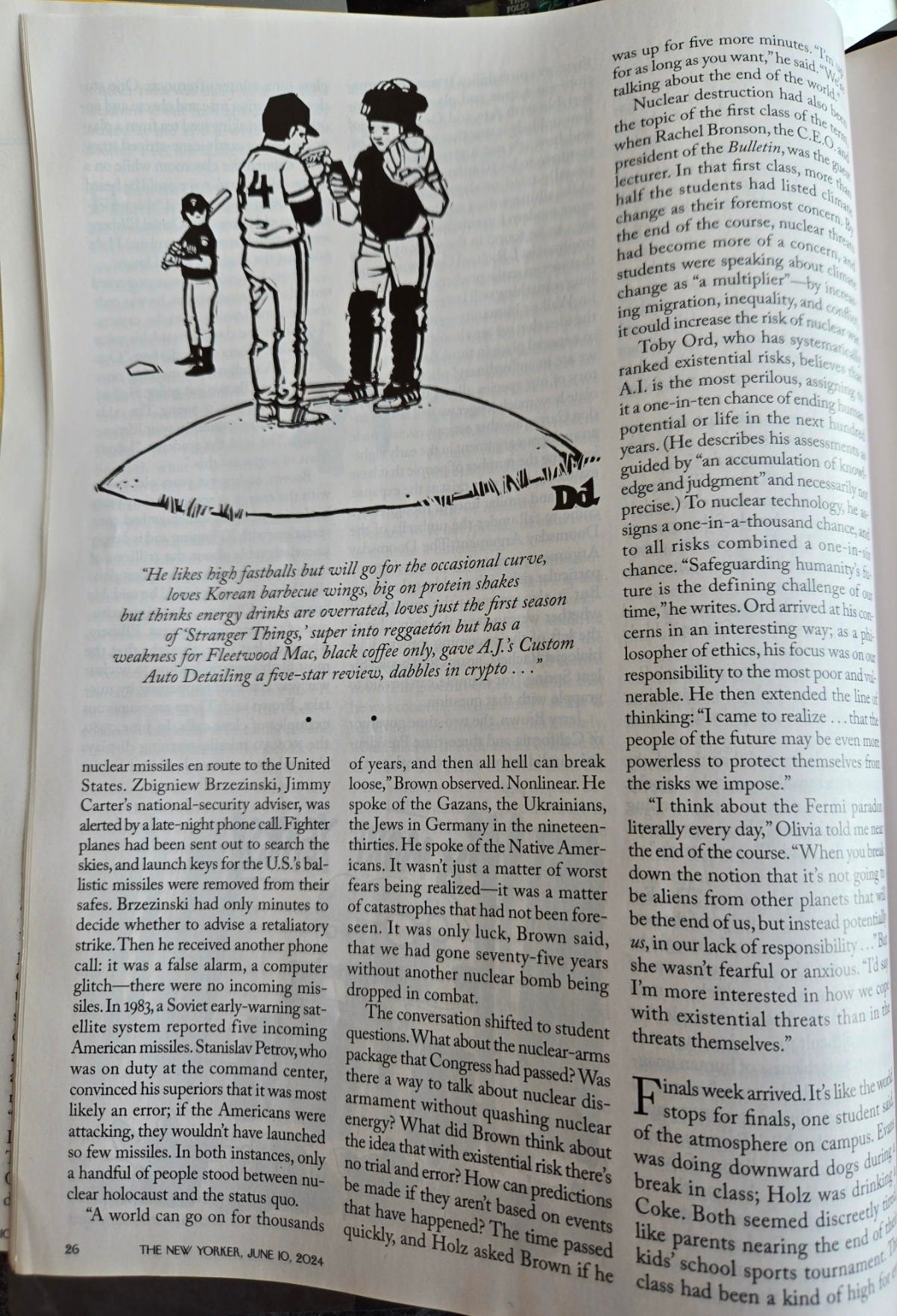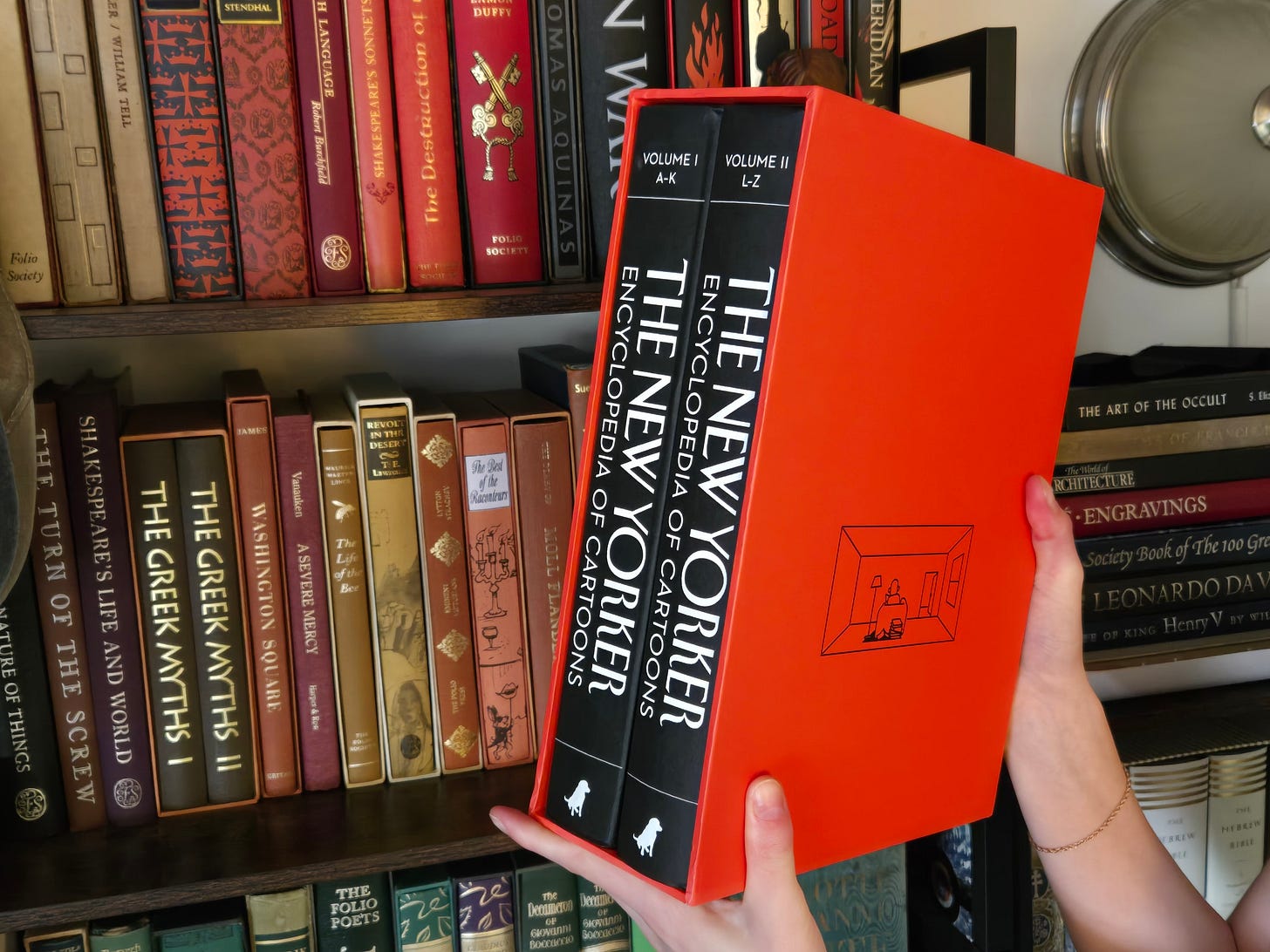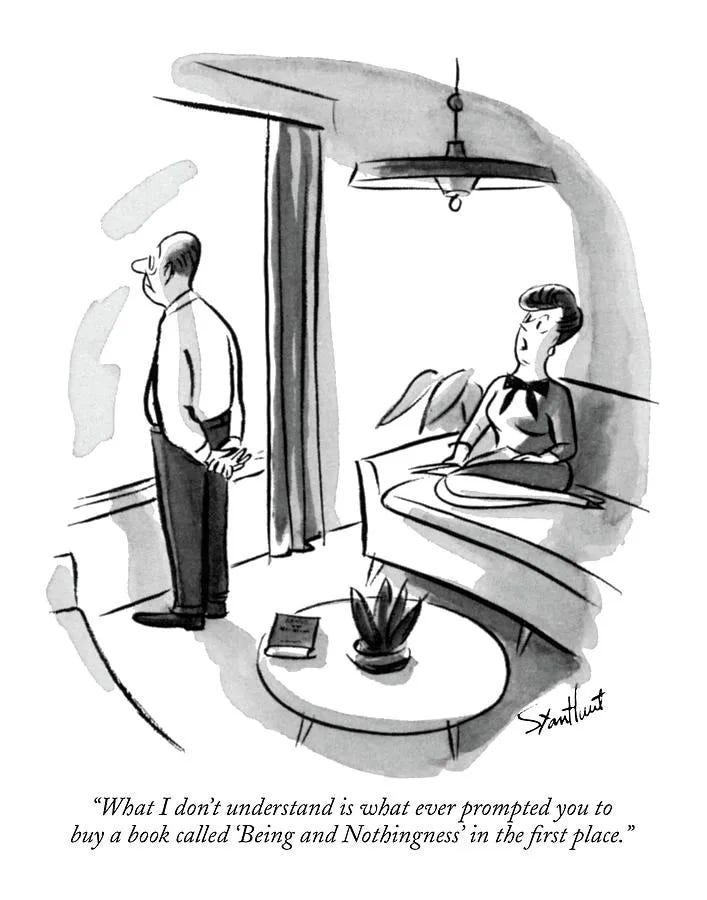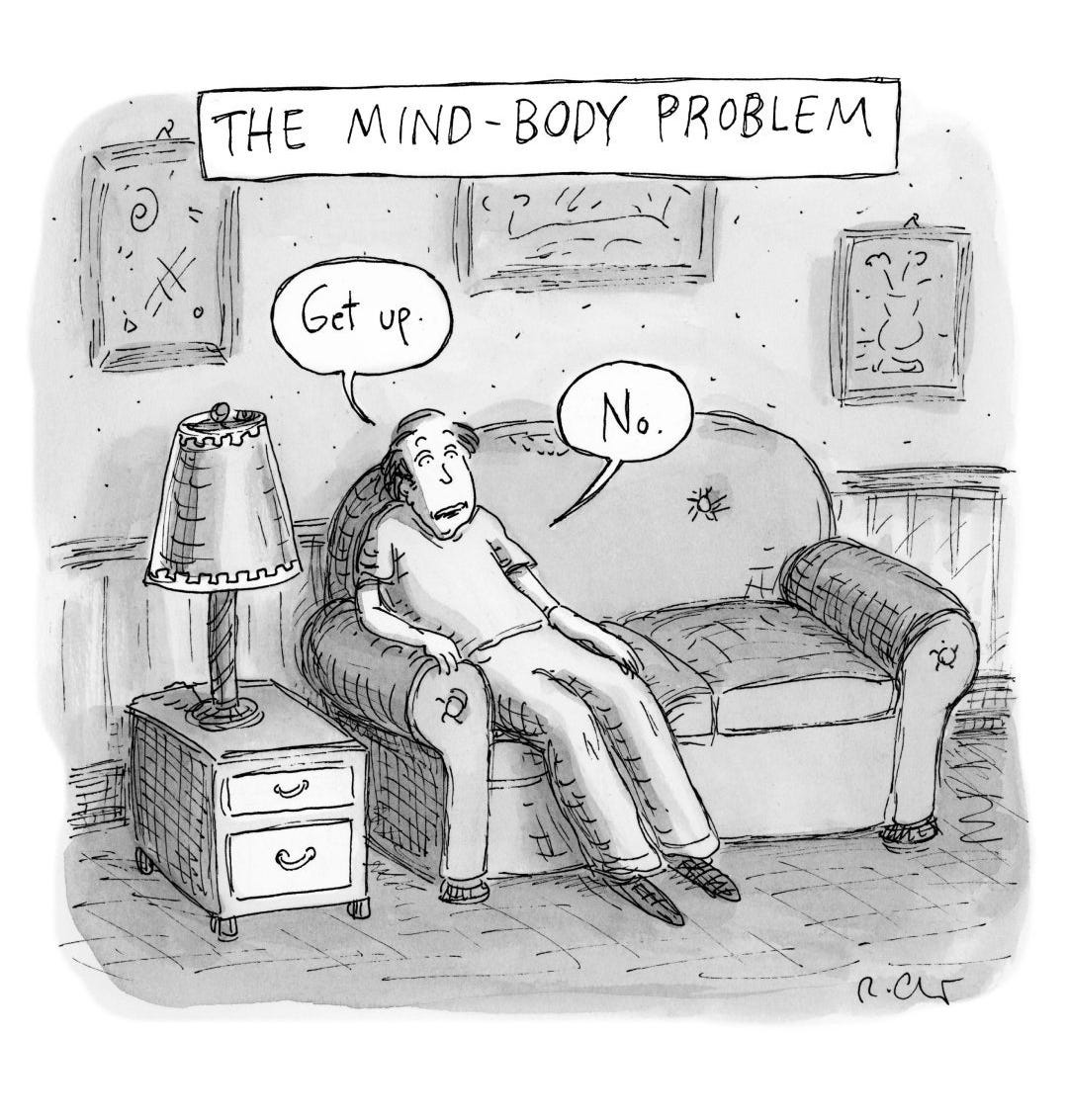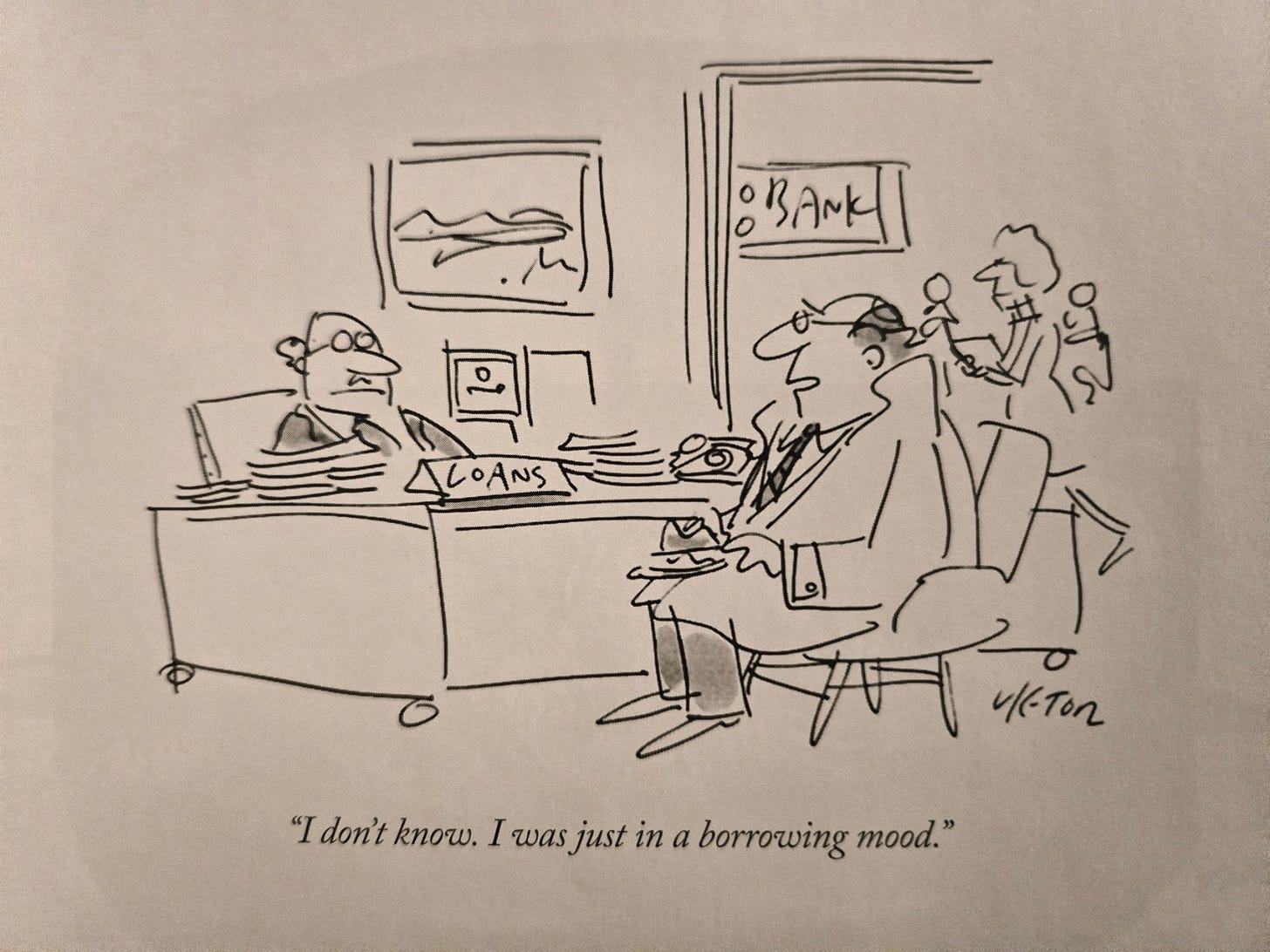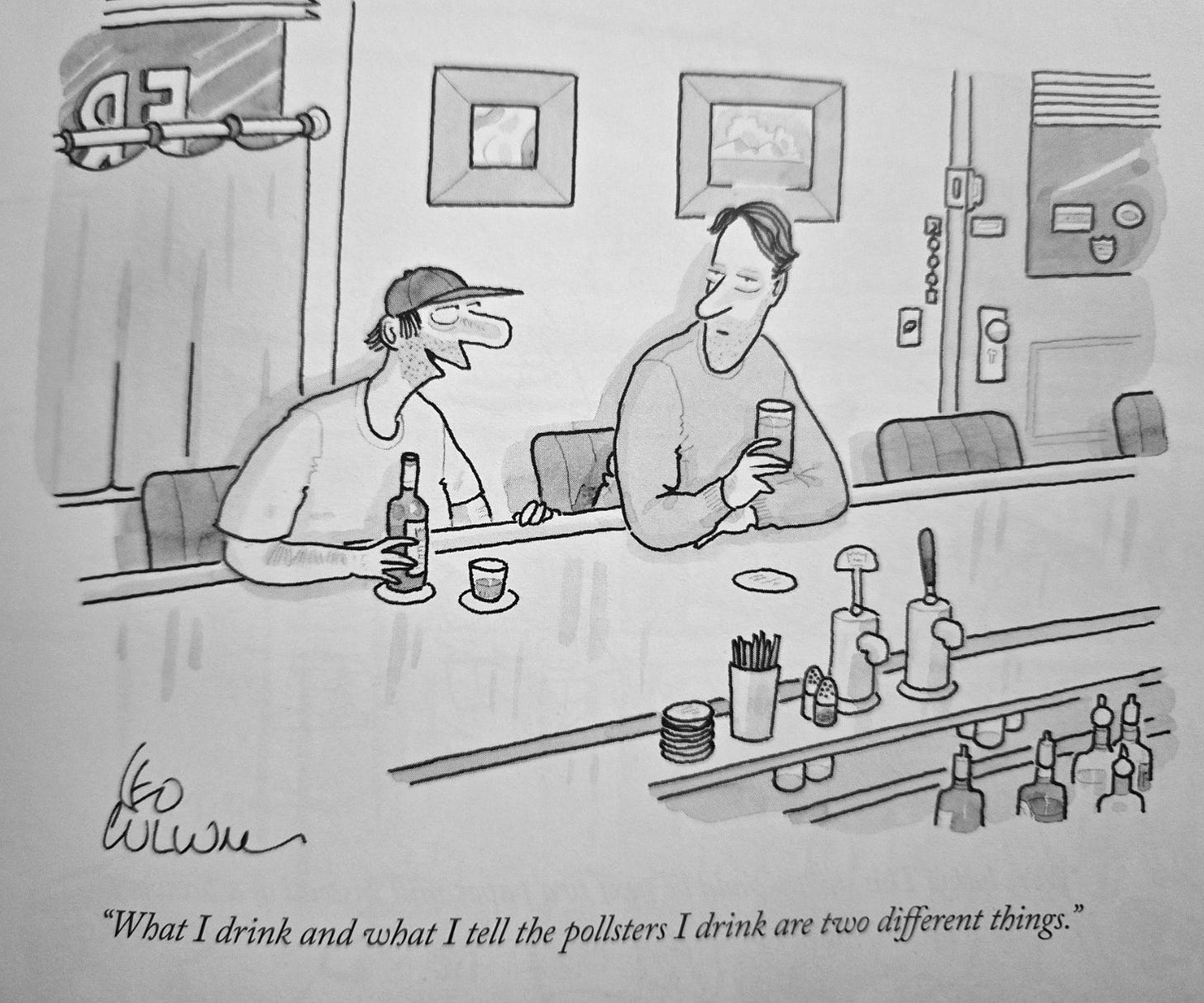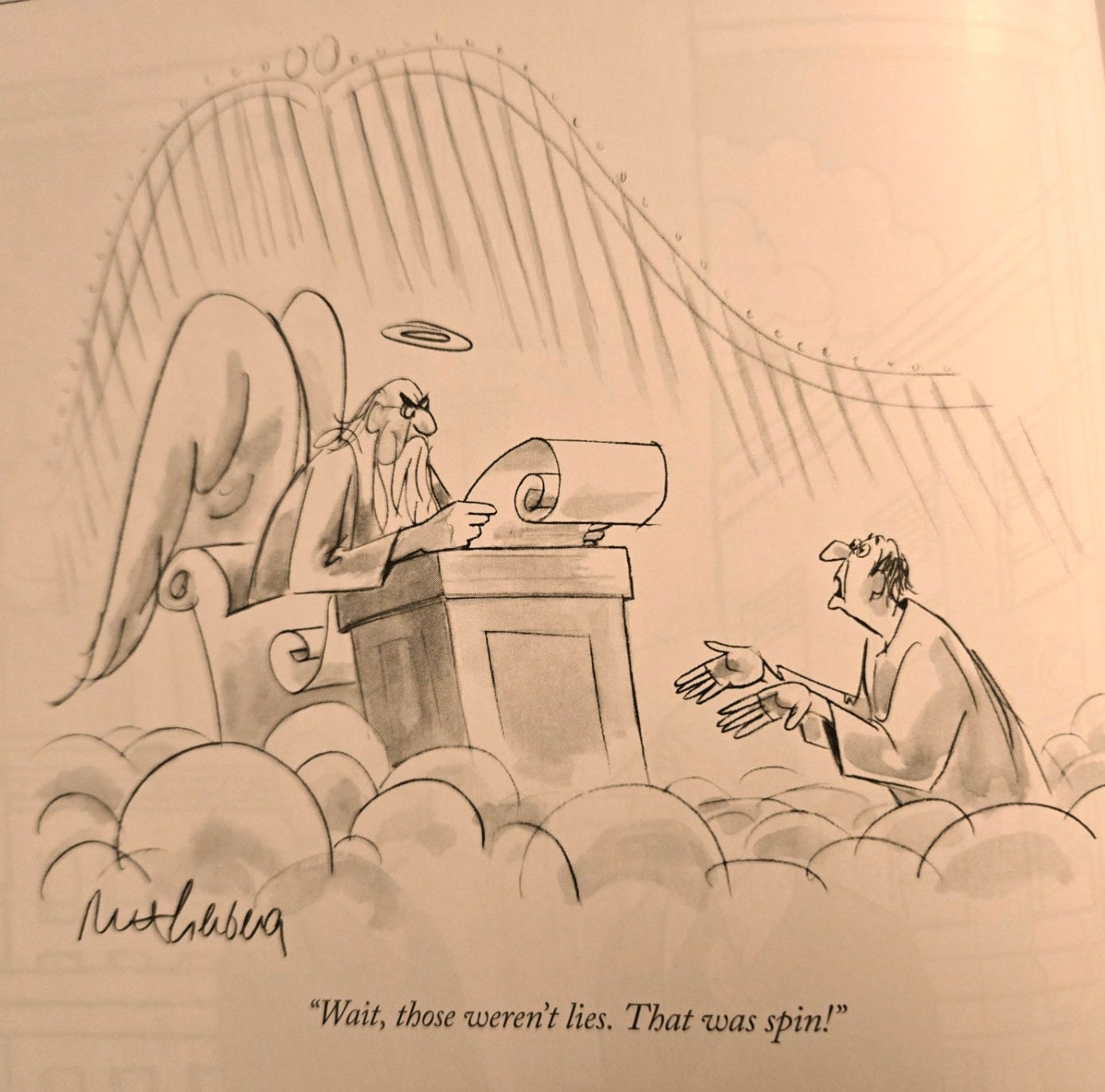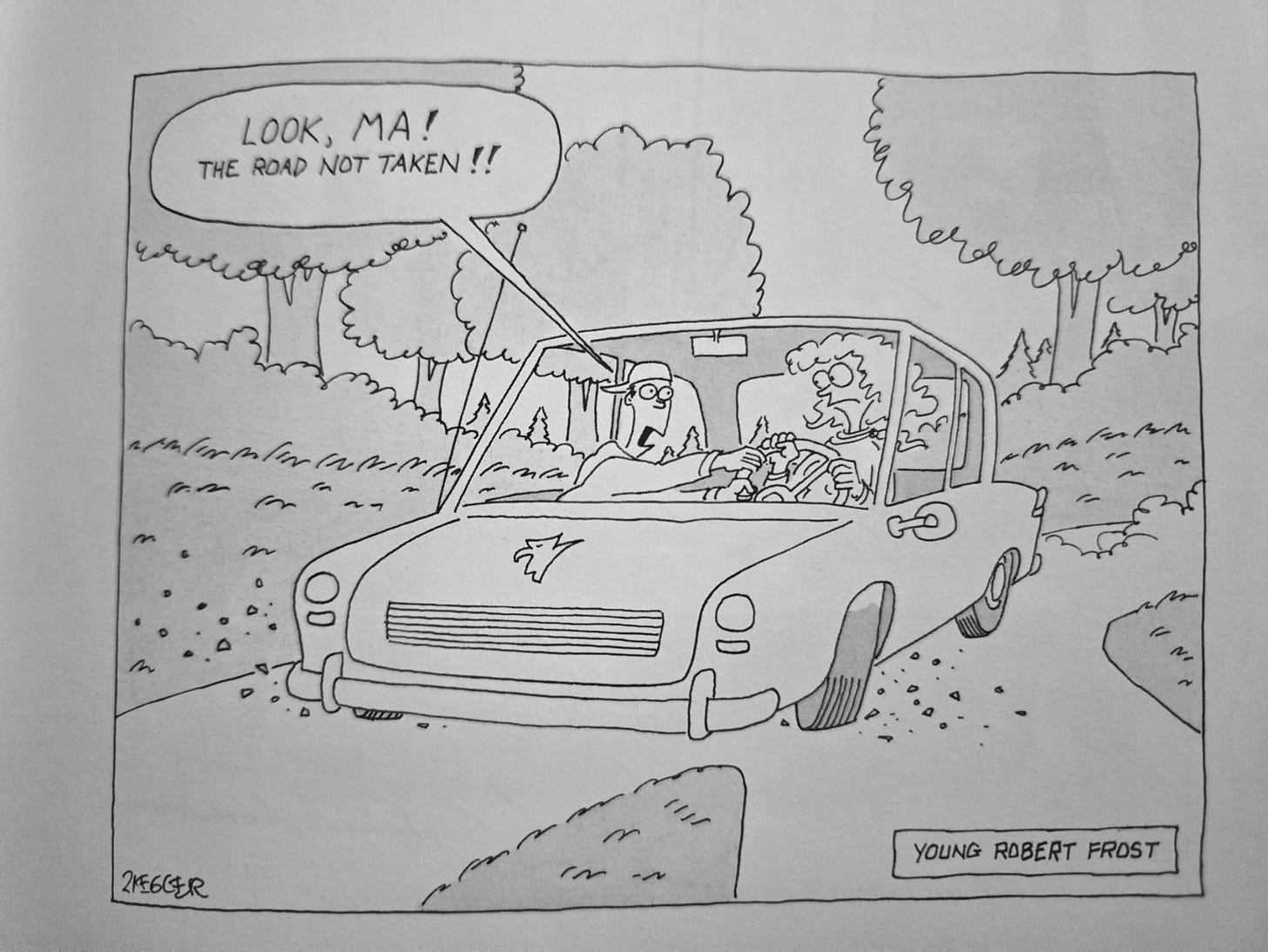The New Yorker Turns 100!
A century of the best miscellany
In another life, where I was born with the natural talents, I enjoy dreaming I’d write for the New Yorker. Probably under Annals of Inquiry, where they slot in most of the philosophizing. Instead of reading Goings On and imagining the city, I’d live there, like a side character out of Fitzgerald. Alas—I’m stuck in Canada, channeling coastal elite with a GDP per capita lower than Alabama and West Virginia.
Of all the activities I spend my free time on, reading the New Yorker might hold the record for new interests created per minute. Some days it feels as though Substack is gunning for that position, but I estimate the time scrolling Notes puts a pin in its posing any real threat.
The Occasion
The magazine turned one hundred years old yesterday. I won’t get into the weeds on its lore really—that’s been done in a number of fantastic retrospectives by the magazine itself. Instead, I’m going to take the opportunity to highlight some of the great authors writing there now (and in the recent past). First though, I want to celebrate the physical side of things.
I’ve given The Atlantic’s print issues a long go, but its captivating pieces I find to be few and far between. Other publications, like the Economist and Foreign Affairs are generally great for their purposes, but don’t strive to be eclectic in the main. That makes them less fun to rifle through, which I think is the main argument for keeping a print subscription.
Flipping through an issue of The New Yorker will usually land you in one of its many great sections, be it Profiles, Annals, or Books. These are typically good for one or two satisfying pieces a week. Without the full archival access online, this probably wouldn’t be enough to justify a sub—but a little irrationality can be a virtue. I think I knew I was hooked when Canada’s postal service went on strike for the whole of December and I felt discomforting pangs at my routine deliveries being interrupted.
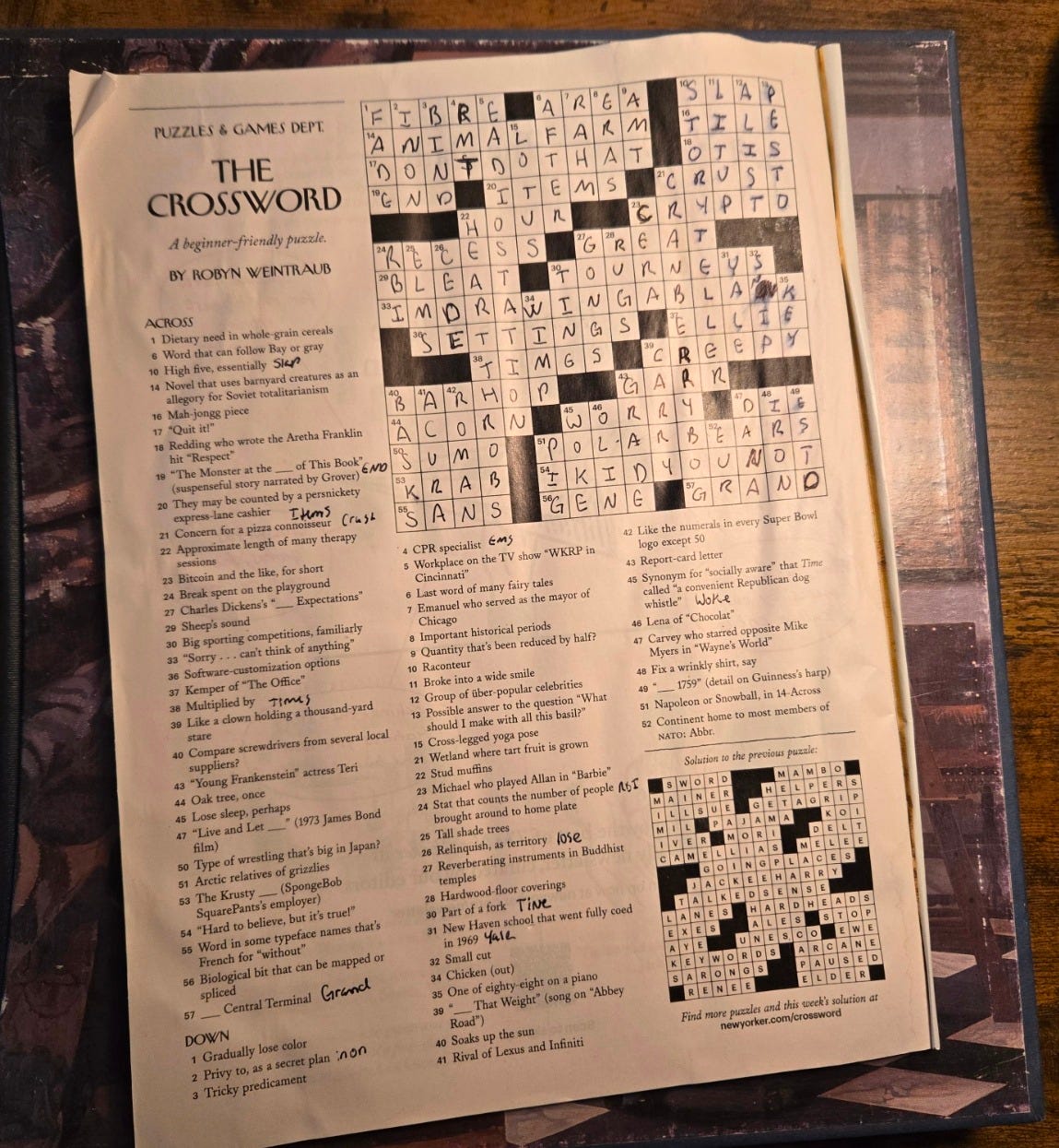
Another aspect that shouldn’t go without mention are the cartoons. I think if someone knows nothing else about the magazine, they’ve at least heard of these. They’re peppered throughout the body of every article and are what pull a bunch of disparate topics into a coherently stylized whole.
The Stuff
Oddly, I don’t find myself reading the magazine’s fiction. I think this has more to do with the broad, difficult-to-escape, crowding out effect that my degree has had on fiction reading. Given the history of what’s been published in that vein—Nabokov, Hemingway, Munro, and Salinger to name a few—it certainly reflects a failing on my own part rather than of any editor’s judgement.
In contrast, I like to think I sample the different genres of non-fiction liberally and I want to spend the rest of this piece recommending some work I’ve benefitted from reading, in the hopes of backing up the praise. We’ll take it section-by-section, so feel free to hop around.
Profiles
On “Succession,” Jeremy Strong Doesn’t Get the Joke - It turns out the star actor of my favourite television drama has an extremely intense and interesting philosophy of his craft, something co-star Brian Cox calls “a particularly American disease”. Though it’s been denounced and ignited controversy in the entertainment press, Michael Schulman’s profile made me fall in love with Strong’s way of seeing things, and I look forward to reading his favourite author, Karl Ove Knausgaard (who did an incredible show with Tyler Cowen) in the near future.
Can Progressives Be Convinced that Genetics Matters? - The more I read about research into genetics, the more I can’t help but recognize how important it is to at least consider when attempting to explain the world. Gideon Lewis-Kraus’ profile of Kathryn Paige Harden, a behavioural geneticist, is a troubling story of left-wing social scientists deliberately linking any work in the domain to eugenics and figures like Charles Murray. This is a popular response to any talk of genes, and a completely unconstructive one.
Joe Biden’s Last Campaign - I was surprised when President Biden finally folded and passed the torch to Kamala Harris, and a good chunk of the puzzlement came down to Evan Osnos’ characterization of the president as motivated by a personal animus toward Donald Trump. In the end, Kent dragging King Lear inside from his rage against the storm didn’t end well for anyone involved.
What Does Robert F. Kennedy, Jr., Actually Want? - RFK Jr. is the quintessential crank. He’s also a dramatic spitting image of the Kennedy grandees from the 1960s who has lived a completely bizarre life. Clare Malone’s profile is a long look at what’s shaped the discordant Secretary of Health and Human Services.
Annals of ____
How to Be Good - If you can’t devote the money or time to David Edmond’s excellent biography of Derek Parfit—one of the great moral philosophers of our age—Larissa MacFarquhar’s piece is a worthwhile distillation.
The End of the English Major - I think this piece induced more doomerism in me than anything else I’ve ever read. Though online voices like Benjamin McEvoy, Henry Oliver, and Naomi Kanakia, as well as stories like this one, have convinced me that a robust literary culture can live on without support from the academy.
Kanye West Bought an Architectural Treasure—Then Gave It a Violent Remix - If Kanye has ever captured your attention, as he once did mine, then you’ll find this story by Ian Parker of his forceful, uncompromising vision, told through the eyes of a construction guy, very interesting.
Have the Liberal Arts Gone Conservative? & The Christian Liberal-Arts School at the Heart of the Culture Wars - I’m relatively bullish on the various experiments in ‘classical education’ that are underway. These focus on the study of canonical texts and deliberately distance themselves from modern technology and debates. Conservatives, as Emma Green writes, have embraced these loudly, but I think it’s a winning issue for them. Students at Hillsdale, based on Green’s reporting, seem to be getting a strong humanities education and aren’t homogenously warping into MAGA zealots.
Has School Become Optional? - If it isn’t obvious yet, I’m easily hooked by pieces on the state of education. This one by Alec MacGillis tells the story of the truancy crisis embroiling public schools across the United States (which has gotten much worse since COVID). Kamala Harris was hammered by some for “prosecuting parents of extremely truant students”, but I’m not sure, reading stories like this, that she should have ever apologized for those efforts.
Books
The Great I Am - I first heard about Robert Alter’s titanic translation of the Hebrew Bible somewhere in the pages of the magazine, but cannot pinpoint exactly where now. In my search however, I found this delightful review of Alter’s Pentateuch by John Updike, who writes with brazen confidence as he rates Alter’s poetic choices and discusses the troubling happenings of the Moses story.
Invitation to a Beheading - Likewise, I can’t recall where I first heard of Hilary Mantel—maybe through the Folio Society?—but I know that this review by James Wood is what made me want to read her Thomas Cromwell books:
Her two most recent novels concern famous historical events—Henry VIII’s divorce from Catherine of Aragon, his marriage to Anne Boleyn, her execution at the King’s orders, the English split from the Roman Church and the authority of the Pope—but they make the stories fragile again, with everything at suspenseful risk.
In short, this novelist has the maddeningly unteachable gift of being interesting.
How Carl Linnaeus Set Out to Label All of Life - Biographies of great thinkers are endlessly interesting and that of Linnaeus, who devised the modern system of species nomenclature, is no different. Kathryn Schulz writes that his era “was in thrall to the mighty project of trying to systematize all of nature” and that, undaunted, “he then set about, like Adam in the garden, naming all of creation.” He was the ultimate “bureaucratic” scholar.
Robert Caro On the Making of “The Power Broker” - Though not published under the ‘Books’ section, I wanted to include this interview by current lead editor David Remnick with Robert Caro. I was introduced to Caro’s work by the magazine and have now completed 2.5 volumes of his Years of Lyndon Johnson, which I hope to parlay into several future posts and a reading habit of other great biographies. Those with any interest in the workings of power should dive in to Caro, who is one of our best living writers.
Arts
The Best Bio-Pics Ever Made - Richard Brody has an incredible command of cinematic history—especially in the French tradition—and reading him and Roger Ebert has led to some definite higher pleasures. Add me on Letterboxd.
A New Way to Hear Some Revelatory Charlie Parker Bootlegs - Bonus points to Brody for getting me to take some baby steps into classic jazz. Hopefully more to come on that front.
Masterstroke Casting in “An Enemy of the People” - Confirming all of my Jeremy Strong priors, Vinson Cunningham made me both want to splurge on a trip to NYC and to get into Ibsen. The latter is at present more likely, but where to start?
Miscellany
A British Nurse was Found Guilty of Killing Seven Babies. Did She Do It? - Neither my girlfriend nor I knew of the Lucy Letby case before listening to this article, and now we both agree she has been the victim of a terrible miscarriage of justice (she has been convicted of murdering seven babies). Perhaps it’s naive to come to such a conclusion based on one piece, but Rachel Aviv’s reportage is persuasive. It is an additional shock to find out that the UK imposes reporting restrictions which make it difficult to criticize judicial decisions.
Can You Read a Book in a Quarter of an Hour? - Anthony Lane confirms your suspicions about apps like Blinkist, which promise to make you a sophisticated reader™ in a fraction of the time.
How Much Can Duolingo Teach Us? - Here’s Carina Chocano diving deep into Duolingo, a far more promising venture than something like Blinkist. It’s also a great profile of the founder, who grew up in Guatemala and experienced a family kidnapping in his youth. At the time, I found the idea of widespread AI language tutoring really cool, and today I only see reasons to expect it to happen.
The Elaphantine Memories of Food-Caching Birds - Some birds can apparently remember tens of thousands of places where they’ve buried their future meals, but Matthew Hutson’s article highlights research showing that this super-memory comes at the cost of cognitive flexibility and general purpose thought. The research itself is really neat to read about:
The large-scale goal of all this work has been to demonstrate natural selection in action—a rare feat, given the time scales on which evolution happens. Such a demonstration, Pravosudov told me, requires three interlocking elements: scientists must identify variation in the wild, understand the trait or behavior’s genetic basis, and show that it has consequences for survival or reproduction. Pravosudov believes that his lab is the only one currently capable of completing the jigsaw puzzle for cognitive, rather than physical, traits—not just for birds but for any animal.
The Hunt for the Giant Squid - David Grann goes out to New Zealand to hunt for a newborn Architeuthis with shoestring kraken hunter Steve O’Shea. It’s awesome.
Loose Ends
There were a few more things I hoped to mention that didn’t fit nicely into the body of this piece. One was the late Bob Gottlieb’s book Avid Reader: A Life, which I came to after getting into Robert Caro’s work. Gottlieb was the editor at Simon & Schuster and Alfred A. Knopf, editing Catch 22, Song of Solomon, The Power Broker, and a myriad of other classic titles before becoming the New Yorker’s editor from 1987 to 1992. For any fans of the magazine and the literary industry, I highly recommend the memoir. As well, the documentary about his working relationship with Caro is heartwarming.
Alex Ross is one of the best writers at the magazine, but my primary exposure to him is via his book The Rest is Noise: Listening to the Twentieth Century, a gripping introduction to the lives and music of towering figures like the Mahlers, Stravinsky, and Schoenberg. The webpage I linked for the book has audio samples and supplementary materials to go with each chapter—none of which were necessary to love my first readthrough, but all of which I look forward to perusing on my second.
Of all the publications I read, this is the one which has succeeded in carving out a little nook of its own in my consciousness, and I hope on its centennial that I’ve shared a few works worth your time.


